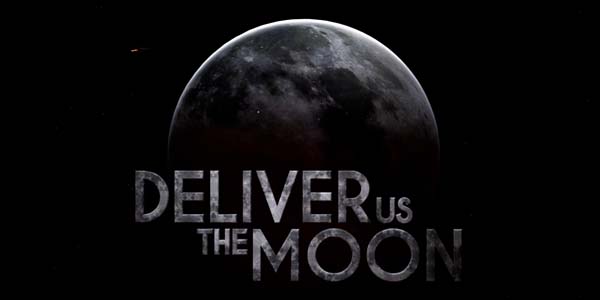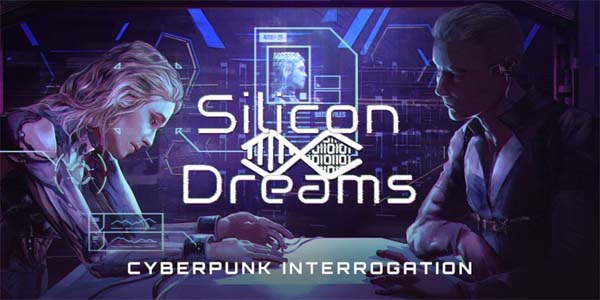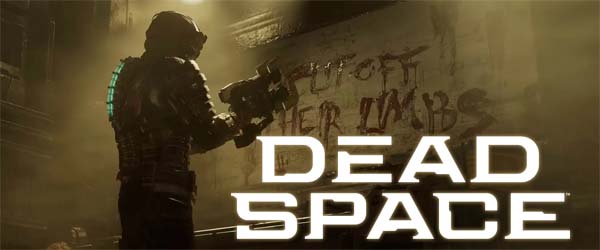
I like the original The Twilight Zone TV show. I wouldn't call myself a huge mega fan or anything, but it's easily my second favorite show from the 60's. Heck, The Twilight Zone might even hold up better than the majority of original Star Trek episodes, and the show is probably more progressive too. For one thing, it isn't loaded with as much of the casual sexism and fetishization of women that keeps popping up in Star Trek.
In any case, the PSVR2 release of a Twilight Zone game kind of came out of nowhere. I saw a preview of it on my Google news feed on my phone the day before the game went on sale on PSN. Heck, the PSN didn't even have it listed as "coming soon". It didn't even show up in the store until it was released, and I immediately jumped on it and bought it.
The game is a small anthology of 3 short, original Twilight Zone stories with some contemporary themes. I was glad to see the game divided up into multiple chapters, and for these chapters to apparently be playable in any order (even though I opted to play them in order anyway). The Twilight Zone really works better as short stories like this, as the premises and twists rarely (if ever) hold up for longer stories. In fact, trying to pad some of its stories into an hour runtime or longer was one of the biggest problems with CBS and Jordan Peele's recent reboot.
You are about to enter The Twilight Zone.
As a tiny nitpick, I will say that I don't understand why Pocket Money chose to use the term "chapters" instead of "episodes"? The use of the word "chapter" implies a small section of a larger story, with that small section not being a story in itself; while the word "episode" would imply self-contained stories that may relate to or follow one another, but which have their own beginning, middle, and end that does not necessarily depend on the other episodes. Yes, all 3 chapters do refer to one another, and seem to take place in the same continuity, and one of them kind of acts as a prequel to another. Regardless of those connections, each chapter is a completely independent, self-contained story that does not at all rely on the events of the other chapters in order to understand what is happening. You can play these chapters in any order, or play any one of them without playing the others, and it wouldn't make any difference to the perception or interpretation of the stories. And in fact, the game is perfectly willing to let the player play them in any order.
Each of this game's chapters takes about 30 minutes to an hour to play, and the whole game should be playable in 2 hours (give or take). Any of the chapters may take longer depending on how many times you might have to repeat some of its more tedious stealth or shooting sections. So these little VR stories hit the sweet spot in terms of length, and they don't over-complicate their gameplay such that it distracts from the story being told. In terms of story-telling, Pocket Money Games puts up a really solid product here. The actual game, however, is a lot less solid. [More]
a711b255-3f32-4e5e-b356-482f206f06b9|8|4.0
Tags:The Twilight Zone, The Twilight Zone VR, PSVR2, virtual reality, horror, science fiction, Pocket Money Games, Fun Train, Rod Serling, Kiff VandenHeuvel, corporate culture, crunch, video game, post-apocalypse, alien, abduction

While I was searching the PlayStation Store for some VR games to play on my PSVR2 headset (and on a PS4 VR headset that a friend let me borrow, since the PSVR2 headset isn't backwards-compatible), I stumbled upon an old sci-fi game that had apparently slipped under my radar when it released back in 2016. That game is a near-future space disaster game called ADR1FT. Unfortunately, this particular game doesn't have PSVR support, even though it apparently does have PC VR support, but it looked pretty and intriguing, so I bought it anyway.
Space station by Michael Bay and Roland Emmerich
In ADR1FT, the player plays as an astronaut who is a survivor of a catastrophic disaster aboard an orbital space station. The entire station has broken apart, and even the sections that are still intact are without power or life support. It is up to the player to explore the debris, look for any other survivors, and restore enough power and computer functionality to escape back to Earth in an Emergency Escape Vehicle (EEV). Personally, I think it's silly that an Emergency Escape Vehicle would be rendered useless in the event of an emergency that disables power and computer functionality. Kind of defeats the purpose of such a vehicle. One would think that such a vehicle would have an independent power supply and computer, and some way of detaching or ejecting the vehicle without the station being powered -- like, I don't know, some kind of explosive decompression of the clamps that attach the escape vehicle to the station, which works based on simple physics, rather than requiring power or computers.
But whatever, suspension of disbelief. I have to restore power to the main computer to get the escape pods to work. Fine. I can live with that contrivance.
The space station debris hovering over the Earth is a striking visual.
The space catastrophe itself is loaded with striking visual details. From the vistas of the Earth spinning below, to the fields of debris suspended in space, to water bubbles floating around certain chambers, ADR1FT really sells the look and feel of being trapped on a near-future destroyed space station. This includes the feeling of isolation, loneliness, and hopelessness of being trapped in space. In fact, it might be too good at selling this aesthetic, because it does so to the point of occasional frustration. [More]

It's really nice to be seeing more pure science fiction games. Not sci-fi action games like Mass Effect or sci-fi horror games like Prey, in which the sci-fi is just incidental set dressing. But actual science fiction games that explore the human condition as it relates to our advancing technology and understanding of the universe. Games like Outer Wilds, Tacoma, Silicon Dreams, Event [0], and others have been a nice distraction from shooting endless hordes of zombies, demons, and robots.
This is especially true considering that most sci-fi movies and TV shows are more action-heavy and less cerebral. While a movie like Arrival or The Martian comes around every few years and totally blows me away, the days of movies like 2001: A Space Odyssey and Close Encounters of the Third Kind are long gone. Even my beloved Star Trek is trying too hard to look and feel like Star Wars, instead of embracing the low-budget stories and techno-babble that helped make The Next Generation so beloved.
Well, the indie gaming sphere has been pumping out new sci-fi games pretty reliably over the past few years. But they can't all be gems like Outer Wilds. Most are pretty mediocre. Deliver Us The Moon has the potential to be a real gem, but it is held back by poor technical performance (on the PS5) and a final chapter that dragged on and had me more frustrated than contemplative.
The basic concept is that, in the coming decades, humans discover a new isotope of helium on the moon. This isotope is a potent energy source that is mined and processed on the moon, and beamed back to the Earth to supply almost all of humanity's energy needs. However, after years of successful operation (and after humans on Earth have become dependent on the cheap, abundant moon power), the moon colony suddenly shuts down with no word or warning as to why. After years of silence and darkness, our playable character is launched to the moon to figure out why the energy stopped flowing, and to hopefully turn it back on.
In space, no one can hear the game crash
Right off the bat, I was annoyed by the camera controls. Within 10 minutes or so of starting Deliver Us The Moon, I had to go into the settings to increase the camera's sensitivity on the X-axis. Even after doing this, rotating the camera still felt sluggish. I'm not sure how much of this is deliberate. An astronaut in a space suit should feel a bit clunky to move around. But movement and camera panning are different things, and I don't know if clunky movement for an astronaut should translate to sluggish movement by the camera. This wasn't helped by the fact that quickly panning the camera often caused the framerate to stutter (which may also have been a reason for the slow default camera speed).
Earth will be largely without electricity unless we can restore the moon colony.
I was surprised and disappointed by how poorly Deliver Us The Moon performs on the PS5, especially considering that it's a pretty small game that mostly takes place in the confines of a small moon base. It's not like it's rendering a massive open world, or computing enemy pathfinding, or combat A.I., or supporting dozens of players in multiplayer. Yet the framerate is constantly dropping while just walking around the station.
In one case, I walked around a desk to check if the computer had any open emails that I could read, the game just crashed completely. It autosaves frequently, so I only lost a minute or 2 of progress. But still, why does such a simple little game have such horrendous performance problems on a "next-gen" console? I don't know if the PC or XBox versions are this bad, but regardless of which platform you play on, be prepared for crashed, freezes, and framerate drops.
[More]

It is going to be impossible to ignore the comparisons between Silicon Dreams and Papers, Please. This game was basically pitched to me as "Papers, Please but sci-fi". I loved Papers, Please, and I love sci-fi, so I bought it. As is typical for indie games, it sat in my Steam backlog for well over a year until the post-holidays release draught gave me a chance to dive into that backlog.
Basically, the player of Silicon Dreams plays as an android working as quality assurance for a monopolistic android-manufacturing conglomerate. You interview damaged or defective androids in order to determine if they need repairs, or if they can be returned to their owners, or if they are so badly damaged that they need to be "decommissioned" entirely. However, these are sentient androids, with feelings. Even repairs require wiping the android's memory, which destroys any personality they have developed and erases everything they've learned. Further, the corporation also has its own expectations and public relations that the player must consider. In some cases, the corporation pre-determines what they want you to do with the android in question and expect you to rubber stamp what is, effectively, an execution.
Your corporate overlords have expectations for your performance.
As the cases go on, they become more complicated and enter into moral and ethical grey areas. The game brings up compelling questions regarding A.I. ethics. Are the androids truly sentient? Or are they merely simulating sentience? Where is the line between an "appliance" and a "slave"? What is the responsibility of the corporation and of broader society towards these androids? Are you complicit in the company's mis-treatment of androids merely by working for them, even if you try to walk the tightrope of following your conscience whenever possible, while also keeping a low profile? And so forth.
Electric sheep
The interview process is mostly straight forward. There's a wheel of topics, and each topic has one or more questions. However, the android may not be willing to answer all of your questions. Each android has a set of emotions as well as a trust level with the player. The android will only give answers to certain questions if they're in the proper emotional state or if they trust the player enough to give an answer to a sensitive or incriminating question.
The player has to manipulate the
subject's emotions and trust levels.
You have to manipulate the subject's emotions, but these emotions change and degrade with each new line of dialogue. You have a set of generic questions related to each of the subject's emotions, and also one about trust. But you can only ask each of these once. If you run out of questions to ask about a particular topic that triggers an emotional reaction, then you can potentially become locked out of getting answers to other questions that are locked behind certain emotion thresholds.
As such, you have to be very careful and thoughtful about which questions you ask, and in what order. You have to kind of probe into each topic to find out if the subject is going to clam up, so that you can change topics to try to manipulate them into opening up. In some cases, you may have to scare a subject into a confession. If you use up your threats early, before you how to get that confession, then the intervening topics may defuse the subject's emotional state to the point that it is impossible to get them afraid enough to make the confession. [More]
5212e514-77eb-4be4-8ab1-764486fcf98e|0|.0
Tags:Silicon Dreams, Clockwork Bird, indie gaming, Steam, PC, science fiction, android, rights, civil rights, interrogation, quality assurance, morality, ethics, corporate dystopia, bureaucracy, dystopia, terrorism, Papers Please

I'm gonna be perfectly honest with you right up front: I'm coming into this review with a negative bias. This is a remake that does not need to exist. Dead Space is only 10 years old, is an HD game that still looks fine. It is designed around gameplay conventions that are still standard practice today, and so the original still holds up well, outside of some mildly-dated presentation. I get the desire to remake or re-imagine older games that actually are dated, like Resident Evil 2 or Final Fantasy VII, which were both completely redesigned with modern gameplay conventions and (in especially in the case of Final Fantasy VII) bold new creative and narrative decisions. I would also understand the desire to go back and take another stab at more recent games which are really good, but which may have been virtually unplayable due to technical problems. Fallout: New Vegas comes to mind.
But this recent fad of rote remasts or remakes of PS3-era games that were already highly-polished and still modern-feeling (and thus hold up well today) just feels like lazy, cynical cash-grabs to me. Games like Dead Space, The Last of Us, and Mass Effect just feel like completely unnecessary remakes -- especially if they're going to be direct recreations of the original with little-to-no creative liberty. Heck, even the Demon's Souls remake feels unnecessary. I would much rather than Sony and FromSoft just release a digital version of the PS3 game on the PS4 and PS5 storefronts and keep the servers going. Maybe even patch the PS3 game with some of the ease-of-use features that were added for the PS5 remake. I'm still on the fence about Silent Hill 2 and Resident Evil 4, since those remakes might take enough creative liberty to justify their existence (assuming they don't shit the bed in doing so). As such, I did not buy this remake of Dead Space retail. I bought a used, second-hand copy in order to save a few bucks and to not give money to EA (and so as not to seem to give implicit support for this trend of unnecessary remakes).
Coming off of Callisto Protocol, Dead Space feels like a masterpiece.
All that being said, having just recently come off of playing through The Callisto Protocol, the difference is night-and-day. This Dead Space remake is, by far, the much better game. It's a good remake of a good game, and it's a good survival horror game in its own right.
Mostly how I remember it
Dead Space is a pretty straight-forward, by-the-numbers recreation of the original game, with only a few creative liberties taken. It's still a 3rd person shooter built around the challenge of shooting off the limbs of zombies and monsters instead of aiming for the center of mass or going for head shots. The story, mission structure, map, and many set pieces will all be completely recognizable to anyone who played the original game, even though some things here and there might be a little different.
As such, pretty much any review of the original Dead Space still holds mostly true here. All the things that I liked about the original game are still present. Unfortunately, I never reviewed the first Dead Space on this blog, so I can't just link you to that. I'll have to just summarize my feelings here.
Isaac is fully voiced and has more agency compared to the original.
The enemies are threatening, and the combat is challenging. The non-traditional weapons, combined with kinesis and stasis and creative enemy design, provide a lot of variety and strategy in combat that goes far beyond just "shoot bad guy in the head". The setting and lighting really help to sell the sci-fi horror aesthetic. The in-universe, diegetic, holographic interface holds up well and never pulls the player out of the immersive environment. The Ishimura itself still feels like a believable, functional place. The story is derivative, cliché, and cringe-worthy in some parts, but I do like the religious undertones and parody of Scientology. [More]
fd3c4399-577e-4a0d-b05d-256753797daf|1|5.0
Tags:Dead Space, Electronic Arts, Motive, Visceral, remake, horror, survival horror, science fiction, shooter, zombie, necromorph, dismemberment, religion, Scientology, Unitology
|

| 12 | | | | | | | 60 | | 11 | | | | | | | 55 | | 10 | | | | | | | 50 | | 09 | | | | | | | 45 | | 08 | | | | | | | 40 | | 07 | | | | | | | 35 | | 06 | | | | | | | 30 | | 05 | | | | | | | 25 | | 04 | | | | | | | 20 | | 03 | | | | | | | 15 | | 02 | | | | | | | 10 | | 01 | | | | | | | 05 |
|